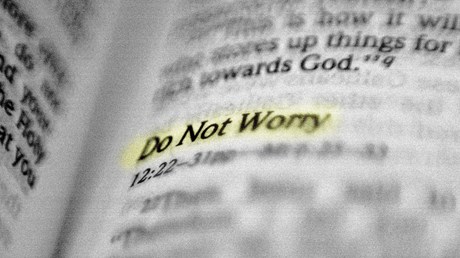This ad will not display on your printed page.
People have described me as fearless, which is funny because I'm scared of everything. A good friend once told me I was the bravest person he knew, also amusing because I live in a perpetual state of anxiety.
I've struggled with anxiety for as long as I can remember — though it wasn't diagnosed until high school. As a kid, I would pace the halls, peering out the window while I waited my mom to return home. Until I saw her car headlights, my brain swirled with dark, brooding thoughts that maybe she'd been in an accident or kidnapped. I would utter repetitive prayers up to God until I saw the lights. These prayers were the only way to deal with the spiraling thoughts in my head. While they felt redundant and ritualistic, they were better than plaguing myself with more worry. Later, I realized these moments as held one of my truest insights into coping with anxiety: prayer.
When severe, ongoing anxiety interferes with day-to-day life (beyond the typical worrying and anxiety we all experience), it may be due to a condition called generalized anxiety disorder. Generalized anxiety, like mine, is often associated with constant worrying and obsession, though sometimes it occurs for no apparent reason.
It affects women twice as often as it does men. The worrying can range from frustrating redundant thoughts to completely paralyzing panic and fear; I fall somewhere in the middle of that spectrum, but sometimes it feels much closer to the paralyzing fear.
All anxiety is rooted in fear, whether we are afraid of losing control or dying or failing or being rejected. Fear turns into true anxiety once it takes power over us and our lives. Those of us who struggle with anxiety disorders understand this feeling too well, frustrated by anxiety's weight and control.
When anxiety results from an actual chemical imbalance, a physical condition that manifested through mental stress, there are aspects of our mental state that we cannot control on our ...


